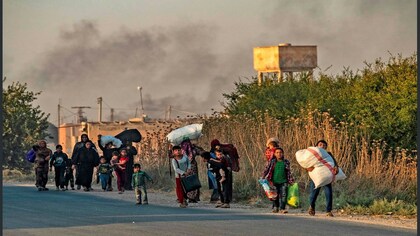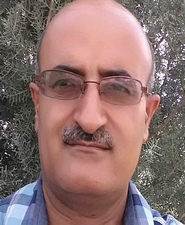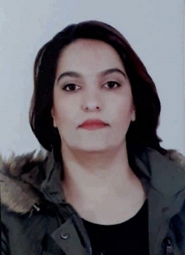How Iran really sees Turkey
14:47 - 5 November 2011

Tehran initially viewed the rise of the Islamist Justice and Development Party (AKP) in Turkey with much enthusiasm. It has turned into a nightmare. Turkey\'s shift against the Assad regime in Syria, and its manifest ideological appeal in a changing Middle East, now has Iranian leaders viewing Ankara as a key part of a U.S. scheme with the Arab States in the Persian Gulf aimed directly at them.
The ascendance of Recep Tayyip Erdogan and the AKP initially thrilled Tehran, which hoped that as Turkey moved toward Islamic government it would be ideologically closer to Iran. Conservative Iranian commentators argued that the AKP\'s goal was an Islamic republic, even if it were to be achieved through elections rather than a revolution. Iran looked at Turkey\'s special relationship with the West and East not as a threat, but as an instrument to reduce Tehran\'s isolation and protect its interests. During several meetings with Prime Minister Recep Tayyip Erdogan and President Abdullah Gull from 2006 to 2010, Ayatollah Ali Khamenei congratulated Turkey\'s political and economic achievements and emphasized that the AKP\'s move toward the Islamic world would \"strengthen\" Muslim countries, while further domestically and regionally popularizing the AKP. Also, Iran was eager to use Turkey\'s new stance to its advantage. Iran welcomed Turkey\'s mediation, along with Brazil\'s, on the nuclear issue in 2010, even if that gambit ultimately failed.
But then the landscape began to shift. Much to the surprise of the Iranians, Turkey became a regional competitor, and its model of moderate Islamic politics proved more popular than Iran\'s hard-line approach. Turkey turned not to be a proxy for Iranian or U.S. interests, ultimately pursuing a foreign policy all its own, without compunction for the sensitivities of the Iranian leadership.
In May of 2010, the Gaza Flotilla incident erupted after the Israeli military intercepted the Turkish supported \"Gaza Freedom Flotilla.\" In their condemnations of the Israeli attacks on the humanitarian ships bound for Gaza, Iranian leaders expressed support for Palestinians, but they were nearly silent on the leading role of Turkey in the confrontation. Instead, Iranian media and officials expressed concerns that Iran\'s role in the incident was not prominent. Anxious to reassert an Iranian presence in the Palestinian issue, some government organizations announced that Iran would soon send its own humanitarian ships to Gaza. Iran\'s Red Crescent Society even set the date of the departure, but the ships were never launched, as the country was not seeking a direct confrontation with Israel. A commentator came up with a telling suggestion: Iran should grant citizenship to the supporters of the Palestinians who die during such humanitarian incidents and help their families. It was one way of inserting Iran into the narrative. It did not happen.
Then came the Arab Spring, which according to Iran, is a misnomer: not Arab, but rather Islamic; not a spring, but like the Islamic Revolution in Iran, permanent. For Iran\'s Leader Ayatollah Khamenei, the Arab Spring is in fact an \"Islamic awakening,\" the flowering of seeds that were sown three decades earlier by the Iranian Revolution of 1979. According to Khamanei, the uprisings signal the time for Iran to enter the scene as Muslims rise up to kick out one Western puppet after another.
But it was Turkey, not Iran, which seized the moment. Tehran watched in horror as Erdogan was received rapturously during his post-revolution trips to Arab countries. His advocacy of the \"secular\" model of government, which respected Islam set off alarm bells not just in Iran\'s political capital, Tehran, but also in the religious city of Qom. Both the political and religious establishments in Iran protested. Even \"moderate\" ayatollahs attacked Turkey\'s \"liberal\" and \"Western\" interpretations of Islam and warned that Iran had fallen behind Turkey in the region. Their voices were initially louder than the voices of Tehran\'s government officials.
What sent Iran over the edge was Turkey\'s shift on Syria. Prime Minister Erdogan went from being a good friend of President Bashar al-Assad, to telling him to either reform or he would soon be ousted. Turkey has hosted conferences for the Syrian opposition and is now reportedly sheltering anti-regime fighters. In response, Tehran sent several messages to Ankara, making it clear that Syria is its \"redline,\" and warned Erdogan not to cross it by backing the anti-Assad opposition. Turkey did not heed Iran\'s warning. Instead it announced that it would install NATO\'s radar system, which is said to be a shield again Iran\'s ballistic missiles, in Turkish territory. Iran\'s tone then became more aggressive and even threatening. President Mahmoud Ahmadinejad and other political and military officials warned that Iran would be forced to respond accordingly since the NATO radar system is to protect its enemies.
Conservative columnists then opened fire. They criticized Turkey for being a Sunni dictatorship that did not represent the other \"50 percent of Turkey\'s population,\" meaning the Alevis and the Kurds. However, they failed to mention that Iran and Turkey are closely cooperating over the challenges posed by their Kurdish minorities. These commentators, who usually voice trends within Iran\'s establishment, implicitly warned that Turkey should be aware that it could easily become unstable. Conservative media close to the office of the Supreme Leader argued that Shiite Alevis, who consists of \"27 percent\" of the population crave for Ankara to move closer to Tehran and Damascus, while Turkey\'s Kurds are angry at the \"brutality\" of the Turkish army. Pointing to Turkey\'s fault lines, they added that its people yearn for the implementation of Islamic law, but that the AKP has only provided them with a \"veneer of Islamism.\" Moreover, Turkey, unlike Iran and Egypt, lacks a long tradition of jurisprudential scholarship and therefore it does not have nearly the intellectual strength to lead the Islamic world. Last but not least, the Arabs cannot forget the \"bitter\" memories of the Ottoman period. Thus, Ankara\'s euphoric moment cannot last since the new Egypt will once again reassert itself and balance Turkey.
The new Iranian narrative now fingers Turkey as part of a bigger U.S.-Israel-Saudi plot to derail the new wave of Islamic awakening. Since the United States is losing its puppets (Mubarak, Ben Ali, etc.) in the region, it has decided to use the Turkish model as a damage control measure. The AKP is also a new tool the United States would like to use for its regime change policy in Iran after the failure of the Green Movement in 2009, the argument continues. This is a sensitive point to make, however. The Iranian government is aware of the ideological affinity between Iran\'s reformist opposition and the AKP.
Although they were born in diametrically opposed political systems, both strive to strike a balance between Islam and democracy. Iranian leaders fear that the AKP may inflict a similar damage to their legitimacy as the Iranian reform movement has. They acknowledge that the reformists, although defeated for now, managed to crack the heart of the establishment and bring many die-hard supporters of the regime to their side or neutralize them. Now, the AKP could create a similar legitimacy crisis for the Islamic government on a regional level, weakening Iran\'s soft power and undermining its popularity in the Muslim world.
There was a time when Iran would rely on its revolutionary ideology to project power. The Islamic government now finds itself relying on using its power to project ideology, to prove its revolution was right, and to demonstrate its message was just. In a recent speech, Ayatollah Khamenei claimed that the world is entering a \"historic turn,\" in which the Islamic Republic should be the model for all countries on earth. But that could become a cruel prophecy indeed if the model they were looking for turns out to be Turkish.
Posted By Mohammad Ayatollahi Tabaar
Mohammad Ayatollahi Tabaar teaches Iranian politics at George Washington University. He is a scholar at the Middle East Institute.
The ascendance of Recep Tayyip Erdogan and the AKP initially thrilled Tehran, which hoped that as Turkey moved toward Islamic government it would be ideologically closer to Iran. Conservative Iranian commentators argued that the AKP\'s goal was an Islamic republic, even if it were to be achieved through elections rather than a revolution. Iran looked at Turkey\'s special relationship with the West and East not as a threat, but as an instrument to reduce Tehran\'s isolation and protect its interests. During several meetings with Prime Minister Recep Tayyip Erdogan and President Abdullah Gull from 2006 to 2010, Ayatollah Ali Khamenei congratulated Turkey\'s political and economic achievements and emphasized that the AKP\'s move toward the Islamic world would \"strengthen\" Muslim countries, while further domestically and regionally popularizing the AKP. Also, Iran was eager to use Turkey\'s new stance to its advantage. Iran welcomed Turkey\'s mediation, along with Brazil\'s, on the nuclear issue in 2010, even if that gambit ultimately failed.
But then the landscape began to shift. Much to the surprise of the Iranians, Turkey became a regional competitor, and its model of moderate Islamic politics proved more popular than Iran\'s hard-line approach. Turkey turned not to be a proxy for Iranian or U.S. interests, ultimately pursuing a foreign policy all its own, without compunction for the sensitivities of the Iranian leadership.
In May of 2010, the Gaza Flotilla incident erupted after the Israeli military intercepted the Turkish supported \"Gaza Freedom Flotilla.\" In their condemnations of the Israeli attacks on the humanitarian ships bound for Gaza, Iranian leaders expressed support for Palestinians, but they were nearly silent on the leading role of Turkey in the confrontation. Instead, Iranian media and officials expressed concerns that Iran\'s role in the incident was not prominent. Anxious to reassert an Iranian presence in the Palestinian issue, some government organizations announced that Iran would soon send its own humanitarian ships to Gaza. Iran\'s Red Crescent Society even set the date of the departure, but the ships were never launched, as the country was not seeking a direct confrontation with Israel. A commentator came up with a telling suggestion: Iran should grant citizenship to the supporters of the Palestinians who die during such humanitarian incidents and help their families. It was one way of inserting Iran into the narrative. It did not happen.
Then came the Arab Spring, which according to Iran, is a misnomer: not Arab, but rather Islamic; not a spring, but like the Islamic Revolution in Iran, permanent. For Iran\'s Leader Ayatollah Khamenei, the Arab Spring is in fact an \"Islamic awakening,\" the flowering of seeds that were sown three decades earlier by the Iranian Revolution of 1979. According to Khamanei, the uprisings signal the time for Iran to enter the scene as Muslims rise up to kick out one Western puppet after another.
But it was Turkey, not Iran, which seized the moment. Tehran watched in horror as Erdogan was received rapturously during his post-revolution trips to Arab countries. His advocacy of the \"secular\" model of government, which respected Islam set off alarm bells not just in Iran\'s political capital, Tehran, but also in the religious city of Qom. Both the political and religious establishments in Iran protested. Even \"moderate\" ayatollahs attacked Turkey\'s \"liberal\" and \"Western\" interpretations of Islam and warned that Iran had fallen behind Turkey in the region. Their voices were initially louder than the voices of Tehran\'s government officials.
What sent Iran over the edge was Turkey\'s shift on Syria. Prime Minister Erdogan went from being a good friend of President Bashar al-Assad, to telling him to either reform or he would soon be ousted. Turkey has hosted conferences for the Syrian opposition and is now reportedly sheltering anti-regime fighters. In response, Tehran sent several messages to Ankara, making it clear that Syria is its \"redline,\" and warned Erdogan not to cross it by backing the anti-Assad opposition. Turkey did not heed Iran\'s warning. Instead it announced that it would install NATO\'s radar system, which is said to be a shield again Iran\'s ballistic missiles, in Turkish territory. Iran\'s tone then became more aggressive and even threatening. President Mahmoud Ahmadinejad and other political and military officials warned that Iran would be forced to respond accordingly since the NATO radar system is to protect its enemies.
Conservative columnists then opened fire. They criticized Turkey for being a Sunni dictatorship that did not represent the other \"50 percent of Turkey\'s population,\" meaning the Alevis and the Kurds. However, they failed to mention that Iran and Turkey are closely cooperating over the challenges posed by their Kurdish minorities. These commentators, who usually voice trends within Iran\'s establishment, implicitly warned that Turkey should be aware that it could easily become unstable. Conservative media close to the office of the Supreme Leader argued that Shiite Alevis, who consists of \"27 percent\" of the population crave for Ankara to move closer to Tehran and Damascus, while Turkey\'s Kurds are angry at the \"brutality\" of the Turkish army. Pointing to Turkey\'s fault lines, they added that its people yearn for the implementation of Islamic law, but that the AKP has only provided them with a \"veneer of Islamism.\" Moreover, Turkey, unlike Iran and Egypt, lacks a long tradition of jurisprudential scholarship and therefore it does not have nearly the intellectual strength to lead the Islamic world. Last but not least, the Arabs cannot forget the \"bitter\" memories of the Ottoman period. Thus, Ankara\'s euphoric moment cannot last since the new Egypt will once again reassert itself and balance Turkey.
The new Iranian narrative now fingers Turkey as part of a bigger U.S.-Israel-Saudi plot to derail the new wave of Islamic awakening. Since the United States is losing its puppets (Mubarak, Ben Ali, etc.) in the region, it has decided to use the Turkish model as a damage control measure. The AKP is also a new tool the United States would like to use for its regime change policy in Iran after the failure of the Green Movement in 2009, the argument continues. This is a sensitive point to make, however. The Iranian government is aware of the ideological affinity between Iran\'s reformist opposition and the AKP.
Although they were born in diametrically opposed political systems, both strive to strike a balance between Islam and democracy. Iranian leaders fear that the AKP may inflict a similar damage to their legitimacy as the Iranian reform movement has. They acknowledge that the reformists, although defeated for now, managed to crack the heart of the establishment and bring many die-hard supporters of the regime to their side or neutralize them. Now, the AKP could create a similar legitimacy crisis for the Islamic government on a regional level, weakening Iran\'s soft power and undermining its popularity in the Muslim world.
There was a time when Iran would rely on its revolutionary ideology to project power. The Islamic government now finds itself relying on using its power to project ideology, to prove its revolution was right, and to demonstrate its message was just. In a recent speech, Ayatollah Khamenei claimed that the world is entering a \"historic turn,\" in which the Islamic Republic should be the model for all countries on earth. But that could become a cruel prophecy indeed if the model they were looking for turns out to be Turkish.
Posted By Mohammad Ayatollahi Tabaar
Mohammad Ayatollahi Tabaar teaches Iranian politics at George Washington University. He is a scholar at the Middle East Institute.



